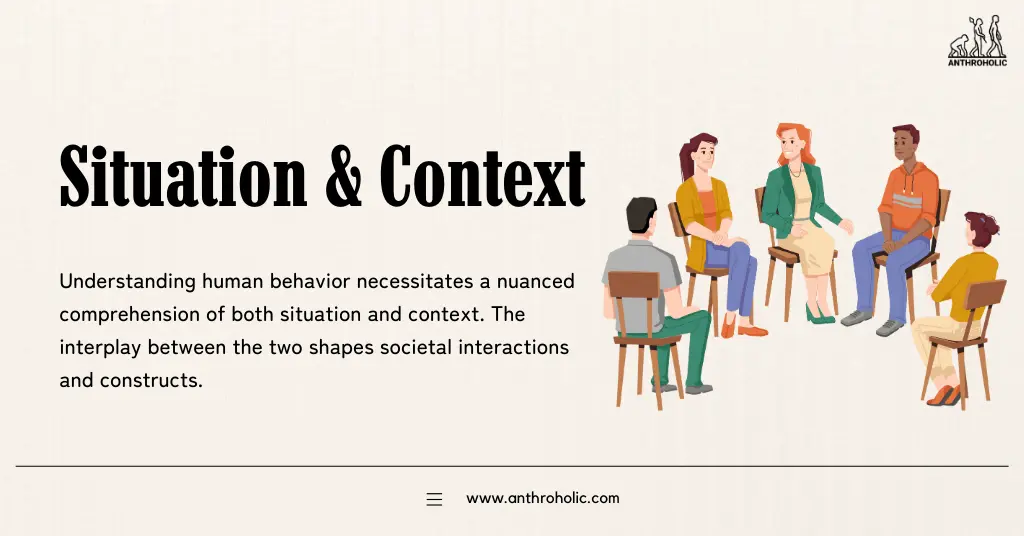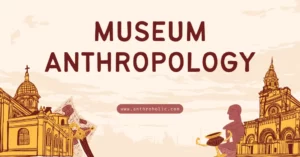AI Answer Evaluation Platform Live Now. Try Free Answer Evaluation Now
Situation and Context
Understanding human behavior necessitates a nuanced comprehension of both situation and context. The interplay between the two shapes societal interactions and constructs. The discipline of anthropology, with its focus on human societies and cultures, lends itself perfectly to this discussion. This article will delve into the anthropological significance of these concepts.

Understanding Situation and Context
A. Defining Situation
Situation typically refers to a set of circumstances or conditions in which an individual finds themselves at a particular moment. These can include physical settings, social interactions, or even an individual’s internal state.
B. Understanding Context
Context, on the other hand, is the broader environment or conditions that influence or give meaning to a situation. It can include cultural norms, historical settings, geographical locations, and societal values.
Interplay of Situation and Context: An Anthropological Approach
A. Influencing Individual Behaviors and Interactions
- Cultural norms and values: These often shape the ways individuals react to particular situations. For example, a verbal greeting may be appropriate in one cultural context, while in another, a bow or a handshake may be the norm.
- Societal constructs: Society’s constructs, such as gender roles, class structures, and power dynamics, influence the way individuals respond to situations.
B. Shaping Societal Structures
The context within which a society exists often shapes its structures and norms. For instance, societies that have traditionally relied on agriculture may have different societal structures than those in nomadic or industrial societies.
| Agricultural Societies | Nomadic Societies | |
|---|---|---|
| Economic Structure | Subsistence farming, local barter systems | Herding and trading, mobility-oriented economy |
| Social Structure | Stable, often hierarchical structures, gender roles tied to agricultural tasks | Fluid, often egalitarian structures, gender roles tied to mobility and herding tasks |
Table 1: Comparison of societal structures influenced by context.
Anthropology’s Role in Studying Situation and Context
Anthropology plays a crucial role in understanding the interplay of situation and context:
- Holistic Approach: Anthropology’s holistic approach encompasses various facets of human life, offering comprehensive insights into the situational and contextual aspects of society.
- Cross-cultural Comparisons: The field allows cross-cultural comparisons, highlighting the role of context in shaping situations across different cultures.
Case Study: The Yanomami People
A study of the Yanomami people, an indigenous tribe in the Amazon rainforest, provides an excellent example of the influence of situation and context. Their societal practices and values are shaped by their context—the rainforest environment. The situational challenges they face, such as resource scarcity, in turn influence their societal norms, such as food sharing and cooperative hunting.
Further Exploration: Role of Digital Contexts
In our increasingly interconnected and digital world, the concepts of situation and context are being extended into digital realms, necessitating further anthropological investigation.
A. Online Situations
With a significant portion of our lives happening online, “situations” now include digital interactions, like social media engagements, online discussions, or virtual meetings.
B. Digital Context
Similarly, the context has expanded to encompass the norms and values of various online communities. The understanding of what is appropriate behavior, the tone of communication, and the way we present ourselves are influenced by the digital context.
Case Study: Online Gaming Communities
For example, online gaming communities have unique situational and contextual elements. The situation can be a multi-player gaming session where individuals from various geographical and cultural backgrounds interact. The context is set by the specific gaming community’s rules, the type of game, and the underlying cultural norms of the players involved.
Challenge for Anthropology
This new extension of situation and context into digital domains poses a challenge and an opportunity for anthropology to expand its research horizons and methodologies. It further emphasizes the fluid nature of these concepts and their broad applicability in understanding human behavior and societal interactions.
Conclusion
Situation and context, thus, are interconnected concepts in anthropology that play pivotal roles in shaping individual behaviors and societal structures. A deep understanding of these concepts aids in the comprehension of human societies and their unique characteristics.
References
- Ortner, Sherry B. “Theory in Anthropology since the Sixties.” Comparative Studies in Society and History, vol. 26, no. 1, 1984, pp. 126–166. https://www.jstor.org/stable/178524
- Geertz, Clifford. “Thick Description: Toward an Interpretive Theory of Culture.” The Interpretation of Cultures, 1973, pp. 3–30. https://philpapers.org/archive/GEETTD.pdf
- Chagnon, Napoleon A. Yanomami: The Fierce People. Holt, Rinehart and Winston, 1968.
- Boellstorff, Tom. “Coming of Age in Second Life: An Anthropologist Explores the Virtually Human.” Princeton University Press, 2008.
- Wilson, Samuel, and Leighton Peterson. “The Anthropology of Online Communities.” Annual Review of Anthropology, vol. 41, no. 1, 2012, pp. 449–467.
- Ortner, Sherry B. “Theory in Anthropology since the Sixties.” Comparative Studies in Society and History, vol. 26, no. 1, 1984, pp. 126–166.
- Geertz, Clifford. “Thick Description: Toward an Interpretive Theory of Culture.” The Interpretation of Cultures, 1973, pp. 3–30.
- Chagnon, Napoleon A. Yanomami: The Fierce People. Holt, Rinehart and Winston, 1968.




